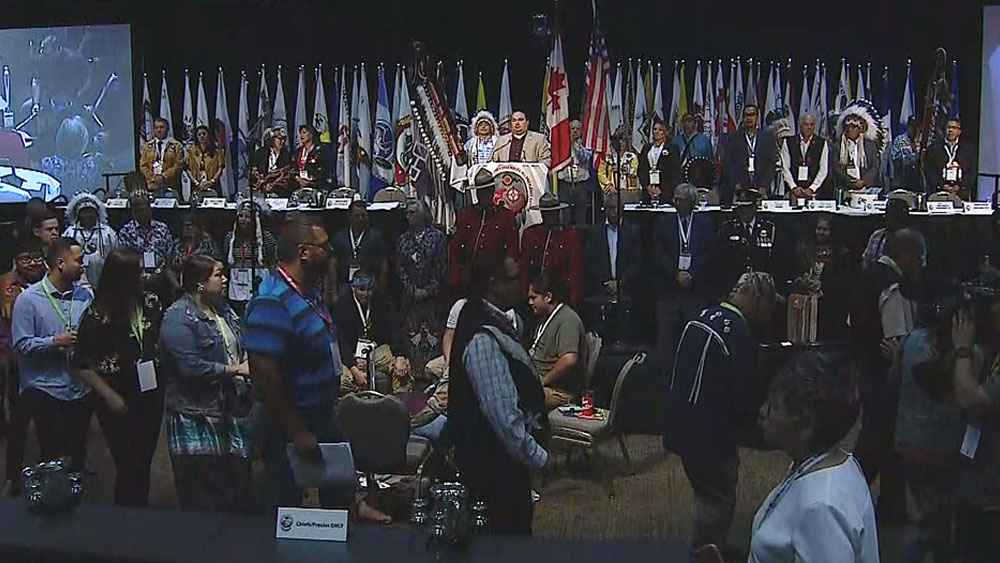
There are a record number of Indigenous candidates running in the 2019 federal election, an analysis by the Assembly of First Nations has found.
The national Indigenous lobby group says there are at least 62 First Nations, Métis and Inuit candidates hoping to win seats on October 21.
That’s a long way from the 1870s when Métis candidates Pierre Delorme, Angus McKay and Louis Riel were elected to the Canadian House of Commons.
There have been 39 indigenous members of Parliament since then.
But it wasn’t until 2015 that Indigenous involvement in the federal electoral system peaked at 54 candidates – 10 of which were elected to Parliament.
“Getting our people around decision-making tables is key to bringing about better policy and legislative change in Canada,” said AFN National Chief Perry Bellegarde.
Indigenous voters
The 2015 election attracted the second-highest number of Indigenous voters, as well.
Voters marked 236,038 ballots in 2015, up from 160,244 in 2011.
“I want to see that number go up because that’s the way you influence any future member of Parliament,” noted Bellegarde.
“First Nations issues and priorities are important, our voice matters, our priorities matter. We’re going to matter in this election because we vote now.”
His organization found that most First Nation votes went to the Liberals and NDP in 2015.
But in 2019, AFN said it’s the NDP with the highest number of Indigenous candidates at 27. The Liberals have 18, the Greens and Conservatives each seven, and two are running for the Peoples Party of Canada.
Jody Wilson-Raybould, a former Liberal cabinet minister, is seeking re-election as an Independent.
Meanwhile, it was Alberta that recorded the highest on-reserve voter turnout in 2015 at 24,638 people. That’s more than double the total in 2011.
With files from The Canadian Press









